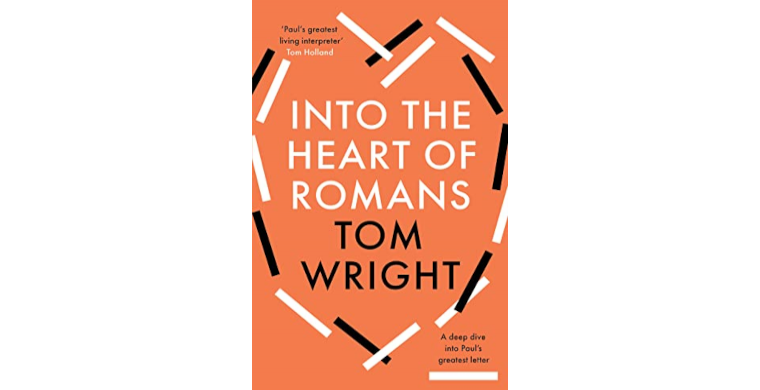Tom Wright corrects Western misinterpretations of St Paul
Book Review of Into the Heart of Romans, Tom Wright, SPCK, 2023. £20. 234pp.
By Chris Sugden
ANGLICAN MAINSTREAM
Jan 18, 2024
The apostle Paul had an agenda and so does Professor Wright.
Dr Wright brings a Pauline corrective to some western misrepresentations of Christian faith. Western Christians have often, perhaps unwittingly, absorbed a Platonic view of the world, divided between the real 'unseen, spiritual' world and the present seen material world. Add in a bit of modernity (an eschatology of progress and enlightenment without God), followed by the reaction of post-modernity (a harsh doctrine of original sin), with a hermeneutic of suspicion without any prospect of redemption or forgiveness.
The result has been a Christian message of "of course the world's a mess, because it does not know Jesus; but we're alright, heading for salvation somewhere else; we don't really belong here, we're just passing through on our way to heaven". Heaven, he notes,is a word that never appears in Paul's writings..
Dr Tom, whom I have known for over fifty years, examines Romans 8 in detail, noting especially his connecting words like 'for' and 'but'. He argues that Paul's message is that the Messiah of Israel fulfils God's purpose for humanity to look after his creation (a better word than 'nature', he says, as it implies a creator), and his promises to Israel to be the people through whom he would do that. God is creating a new people of the Messiah who will not only one day rule over the whole of a renewed physical creation, but through whom God is working today to express that reality which will be completed at the Messiah's return. This is the meaning of glory: the proper human vocation and dignity under God and over the world, now made possible by the indwelling of the spirit,
Even the groaning that Christians experience through their suffering in this present age is God himself at work through his spirit in them, sharing their suffering and pouring out prayer according to his will. In this they are co-workers with God. This is about their vocation having been saved, not their salvation.
He writes that we know that God has not given up on his creation in disgust because, in italics: "We will be there, indwelt by the same spirit. We are called to be people who stand at the place of pain -- in the cancer ward, at the asylum-seeker's court hearing....so as to be with those within whose own painful perplexity the holy spirit will plead to the father on behalf of the whole creation." Thus he insisted that the first proper response to the COVID pandemic was lament. God's suffering people are part of the means by which the victorious death of Jesus is applied to the world. With the spirit's groaning within us, we are called to share in God's rescue plan for the whole world.
Dr Tom argues that the persecution and hardship Christians experience for their faith, far from being signs of God's displeasure, are a participation in the Messianic sufferings as his people, and the means by which the pain and anger of the world may be overcome. The assurance of this is that the suffering Messiah rose from the dead.
This does not read like a Professor's book. Dr Tom sits down with the reader and chats with him/her. He speaks of 'it's', and 'doesn't' and 'here's'. I wonder what the copy editors made of that. He also sums up and repeats his points as he goes along so that what he is saying is very clear to the reader, despite the detail.
This is biblical exegesis and theology at its best, coming alongside and reinforcing the wholistic theology of mission of the Bible that those worklng with poor people in ministry have been talking about and working with since the seventies. And it locates Christian faith In the resurrection of the suffering servant, giving hope to facing persecution for their faith in him.
END














